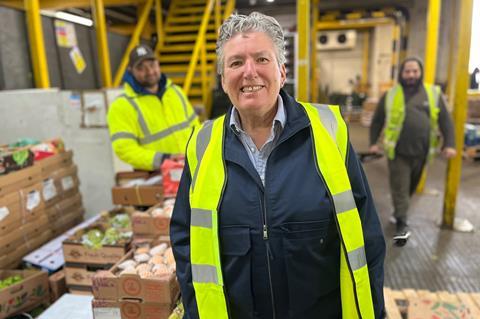New Covent Garden Market Authority chair Wanda Goldwag outlines the vital role wholesale markets continue to play
I’ve been chair of Covent Garden Market Authority for nearly two months. The wholesale market sector is new to me and as well as getting to know NCGM, of which CGMA is the landlord and management company, I’ve visited wholesale markets in East London – New Spitalfields – and Birmingham, to meet with management and tenants.

What struck me immediately was how different each market is in terms of infrastructure and operations, as well as the diversity of cultures and products.
Each is at a different stage of its development. At NCGM, in Nine Elms, we have buildings that range from 50 years old to shiny and new – in three years the entire market will have been redeveloped. The New Spitalfields site, in Leyton, opened in 1991, while Birmingham Market is relatively new having opened six years ago.
The common denominator is that wholesale traders at all three sell fresh fruit and vegetables. While NCGM has the largest wholesale site for flowers, plants and foliage in the country, those products sit on the periphery at the other two markets. Birmingham, however, takes a more integrated approach and also features fish and meat traders.
For my market, the foodservice and hospitality sectors provide the majority of customers these days. Face-to-face business is a far smaller part of what we do. The other two markets have a larger independent retail base, but a less significant catering trade.
All three of us are major contributors to food redistribution charities, which is extremely important.
Until 40 years ago, these markets were the beating heart of the food and flower industries. They still sell well in excess of £2 billion of produce each year. Yet I’m sure that many reading this have little or no recognition of the value wholesale markets bring to their local populations, or society as a whole.
Set against the relative homogeneity of the national supermarket food offer, wholesale markets and their customers genuinely reflect the communities that use them. They are trading environments that mirror the realities of global food production and can only survive and thrive by catering directly to customer demand.
We hardly compete with each other – our competition is elsewhere. We know how crucial our products, services and people are, but we’ve not always been good at getting our voices heard in wide enough circles. My hope is that I can be a catalyst for us beginning to work together to champion the jobs done by each other and the rest of our wholesale market counterparts around the country.



